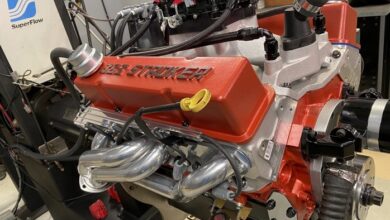
Table of Contents
Toggle1. Oil Leaks Dripping on Hot Engine Parts
- Symptoms: You may notice a burning oil smell, often accompanied by visible leaks under the car.
- Cause: Leaks in engine seals or degraded hoses can allow oil to drip onto hot components like the exhaust manifold, creating a smoky, burnt smell.
- Solution: Check for oil leaks by examining the engine and ground beneath the car after it’s been parked for a while. If you find signs of leaking, have the seals or hoses replaced promptly. Regular oil changes can also help prevent leaks by reducing pressure buildup in the engine.
2. Faulty Electrical Components or Wiring
- Symptoms: The smell of burning plastic or insulation, often stronger near the dashboard or engine bay.
- Cause: Faulty wiring, a worn alternator, or even battery corrosion can overheat components, causing a burning smell. Electrical shorts in wires can also be dangerous if left unaddressed.
- Solution: Inspect the battery, alternator, and wiring. If there’s corrosion on the battery, clean it carefully. For complex wiring issues, it’s best to consult a mechanic to prevent further electrical damage.
3. Worn Clutch (Manual Transmission Vehicles)
- Symptoms: A distinct burning odor when shifting gears, often more noticeable in manual transmission cars.
- Cause: When a clutch disc is worn or the clutch is slipping, it generates extra friction and heat, producing a burning smell. Overuse or “riding the clutch” can accelerate this wear.
- Solution: Drive smoothly, avoiding excessive clutch engagement. If you still detect the burning smell, have a professional inspect the clutch for wear and possible replacement.
4. Overheated Brake Pads
- Symptoms: A burnt smell near the wheels, especially after heavy braking.
- Cause: Excessive or frequent braking, like on steep downhill drives, can overheat brake pads. Worn or improperly installed pads can also produce a burning odor.
- Solution: Allow the brakes to cool down after long drives or heavy braking sessions. Regularly inspect your brake pads and replace them when they’re worn thin. Quality brake pads are designed to handle higher temperatures without overheating.
5. Rubber and Plastic Smells from Engine Components
- Symptoms: A burnt rubber or plastic smell that intensifies while the engine is running.
- Cause: Over time, engine belts, hoses, or plastic components near the engine can degrade and start to melt or burn. This is especially common with belts, which stretch and wear out over time.
- Solution: Regularly inspect engine belts and hoses for signs of wear. Replace them promptly if you find cracks or other damage. A mechanic can perform a thorough inspection and help you with timely replacements.
Preventive Tips to Avoid Burning Smells in Your Car
- Regular Maintenance Checks: Check fluids, belts, and hoses during routine maintenance to catch issues early.
- Brake Care: Avoid unnecessary heavy braking, especially on long drives, to prevent overheating.
- Avoid Overloading Electrical Components: Ensure your battery is in good condition and have any electrical issues professionally inspected.
- Change Oil Regularly: Stick to your vehicle’s oil change schedule to prevent buildup that can cause oil leaks and burning.
Taking these steps can reduce the likelihood of burning smells and keep your vehicle running smoothly. If you encounter any issues you can’t identify, it’s best to consult a trusted mechanic.
Conclusion
A burning smell from your car, even without overheating, can signal issues that may worsen if left unaddressed. From oil leaks and electrical issues to worn-out clutches and brake pads, identifying the cause early can save you from larger repairs and improve safety. Regular maintenance, including routine fluid checks, inspecting belts, and brake care, will help you avoid these odors and keep your vehicle in top condition. If the source of the smell is unclear or persists, consulting a mechanic is always the best course of action to ensure your car remains reliable and safe.





